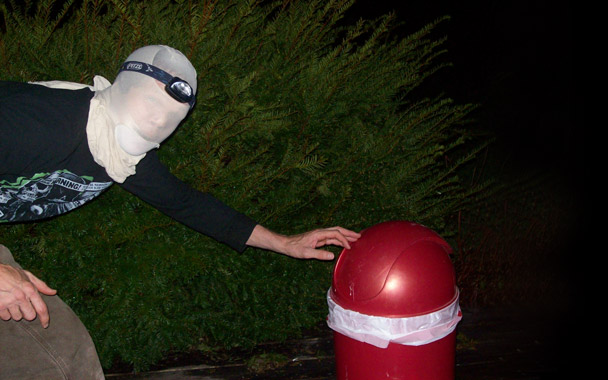A funny thing happened on a recent trip to the grocery store. But first, a quick update on various projects. Our hens are now producing 15 eggs a day. Even if that number doesn’t climb any higher, if the kids sell as many eggs as they claim they’re going to, the hens will have paid for themselves by next winter, and we’ll be eating fresh free-range eggs whenever we want. Sadly, I can’t report the same success regarding our maple syrup: We ended up with a pint. (It’s amazing how quickly the sap stopped running the moment nighttime temperatures rose above freezing.) The syrup, however, is delicious; it’s similar to store-bought Grade B syrup, which we’ve always preferred. Anabel is already talking about how much more we’re going to produce next year. Speaking of warmer weather, the laundry that’s been draped throughout our home has finally gone outside. I’ve headed outside, too, to cut up felled trees and ready them for splitting. Having learned how much wood is needed to heat our vertically challenged home, we’re trying to make sure we have double the wood we had this past winter. And lastly, we’ve started making faux mead. We didn’t have enough honey to make more than a gallon, so I’ve adulterated it with blackstrap molasses, cut with ample amounts of orange rind for flavor. I’m expecting it to turn out much better than the last time I made it, which was on board a replica Viking ship in the Arctic Circle. It never really fermented.
Back to that trip to the store. My discussions with various supermarket managers about getting their old produce for my “pigs” didn’t go well. Apparently, everything is spoken for: Local farmers already get the old produce from two of the markets, and the third gives it to a food pantry. Based on a comment from a reader who goes by the user name nattles, I decided to give dumpster diving one more try by targeting smaller, upscale markets. So the night before last, I set out in the minivan with a pair of pantyhose to pull over my head, a headlamp, and a snow shovel to hit the rats with. Since it was not only dark but also misty, I was driving slowly down Route 52 when suddenly my frugal eye spotted a vibrant green-and-orange something lying alongside the road. Given the conditions, it was just a blur, but my sharply honed penny-pincher’s sixth sense knew it was food. I jerked the car to a stop, ran out in front of a truck, and snatched dinner from a certain squashing.
It was … sniff, sniff … fresh roadkill. A mallard, in fact. Judging by the scent and a smattering of feathers across the pavement, it must’ve happened in the past hour or so—or else, surely, some other scavenger would have made off with it. I threw the duck in back next to the recycling bags and returned home, even more excited than when my friend Adam Scott gave me his suicidal hen.
At this point, I’d like to tell you how I cooked it and what the kids thought of its gamy flavor, but I can’t. We haven’t eaten it yet because I’ve hung it in the basement. According to my man Hugh Fearnley-Whittingstall, writing in The River Cottage Meat Book “…there is no doubt that hanging game makes a considerable difference to its eating quality. As with beef and lamb, a period of hanging relaxes the meat so that it will be more tender.” Of course, there are no clear instructions about what to do with roadkill mallard, but he suggests letting regular mallards hang for three to four days. It’s a relatively short period compared to that for grouse or woodcock because, as Fearnley-Whittingstall points out, they’re a water bird and have cold-loving bacteria that will break down the meat quickly, even in a dank, nearly freezing basement. In general, the length of time you hang game depends on how strong-tasting you want it to be. Given that at least one of the kids has expressed an interest in trying the duck, we’re going to hope two days is long enough to do some tenderizing. Unlike aficionados of gaminess, we will not be waiting until the body separates from the head because, again, according to Fearnley-Whittingstall, waiting for natural decapitation is a bunch of bull. He once forgot about a brace of pheasants, and when he finally checked on them a month later, not only were they inedible, but the heads and bodies were still attached. We want our kids to like and learn from these experiences—not run away from home.
So, finding myself with a little “hang” time, I decided to dumpster-dive last night but, regrettably, my nighttime raid turned into an early-morning expedition. (I kept hitting the snooze button.) By the time I sidled up to my first dumpster at 5:30 A.M., it was already getting light out. And when I saw a calico cat peering at me from the second floor of the house that is only 15 feet from the dumpster, I quickly tiptoed away, as the owners of that particular house have a child in the same grade as one of my kids.
I might still be mad as hell about food prices, but for now, I’m going to Caswell’s—at least until I can quit hitting the snooze button.


